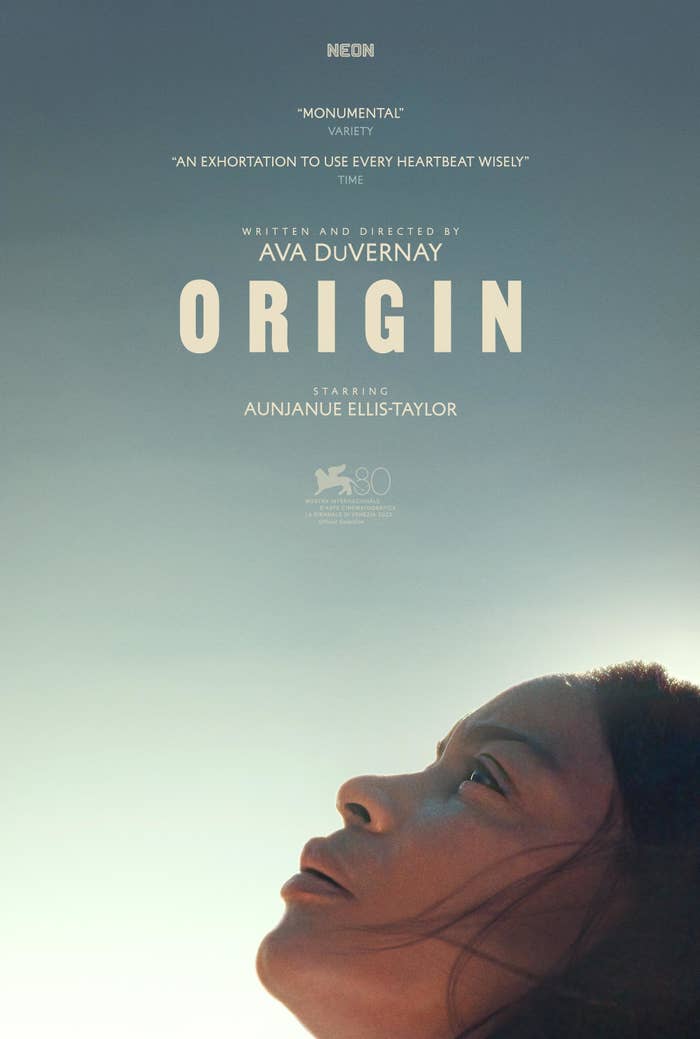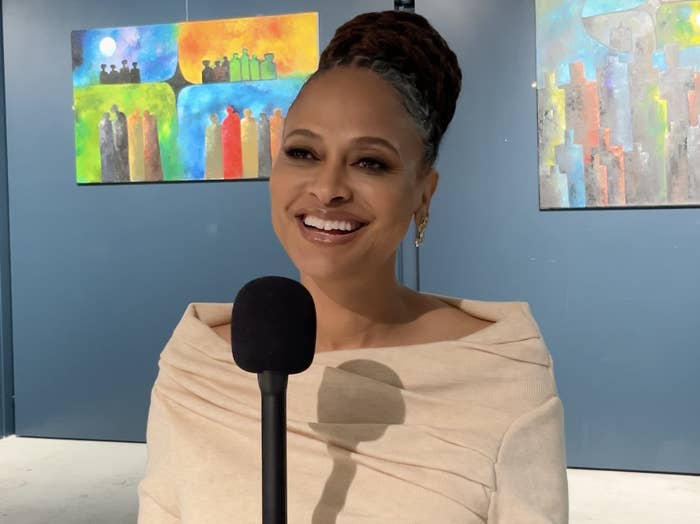Ava DuVernay's latest film Origin takes a look at the intersectionalities across humanity. Born from Isabel Wilkerson book CASTE: The Origins of Our Discontents, we watch her explore how the horrific times of our past and present are all connected. The film is led by Aunjanue Ellis-Taylor alongside the amazing talents of Niecy Nash-Betts and Jon Bernthal.

Sitting with Ava we discuss her process in picking her projects and the benefits of facing trauma:

Firstly, congratulations on the film, you leave the screen with questions in your mind for days if not weeks on end. In the film Isabel says we can’t escape trauma by running away from it, we have to confront it to release ourselves. Throughout your career you’ve dealt with heavy and traumatic incidents within the Black community, is this how you’re healing yourself and the community by making sure we face it head-on?
I really believe that we have been done a disservice by being told and believing that real violence and trauma isn't violence and trauma. This happens when we see killing and murder unattached to emotion for no reason, like in John Wick or whatever. You hear bullets going off, you hear blood, people are falling down dead and that's ok. But to watch our ancestors on a slave ship, to watch white people watching the lynching of a Black man, not even the lynching itself like the neck-breaking, you don't see any of that but you're watching the faces of white folks as they commit a crime. That's seen as trauma.
I think that we've been taught to or asked to ignore the things that really affect us, and call it by something that allows us to put it away as opposed to walking into a dark room, turning on the lights, looking around and saying there's nothing to fear here because I have the knowledge and knowledge is power. So, that's how I see it. I prefer to know, I prefer to read the book, talk to my elders, and understand the theories. Look at the pictures, watch the movie and know what's going on and empower myself in that way. I just invite people to think about it like that as opposed to trafficking in trauma. That’s how I go about it.
